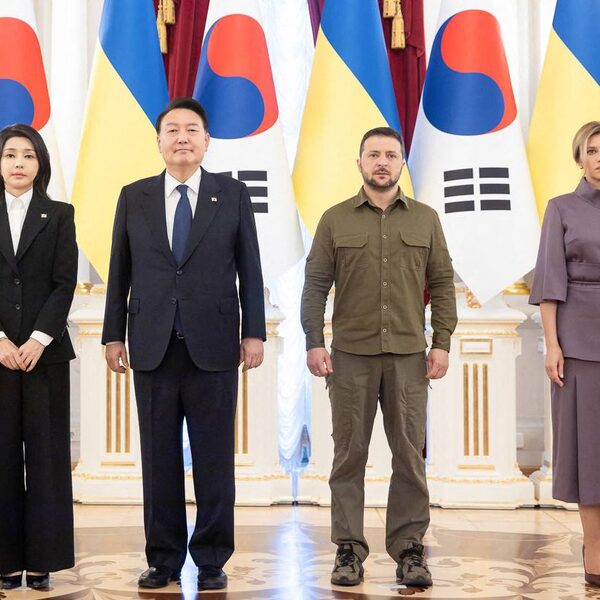In a significant development, Ukrainian President Volodymyr Zelenskiy announced on Tuesday that he has reached an agreement with South Korean President Yoon Suk Yeol to enhance cooperation between their countries in response to North Korea’s involvement in the ongoing Ukraine-Russia war. This announcement comes in the wake of intelligence that North Korea has been deploying troops to Russia in support of its war efforts. The conversation, shared by Zelenskiy on social media platform X, signals a strategic pivot for Ukraine as it seeks global partnerships to counter growing foreign military participation in the conflict.
According to Zelenskiy, he shared intelligence indicating that North Korea has dispatched around 3,000 troops to Russian training grounds near Ukraine’s combat zones, with the number expected to rise to approximately 12,000 in the coming months. This deployment has raised concerns not only within Ukraine but also in the broader international community, as it signals a potential escalation and global alignment on the side of Russia in the protracted war.
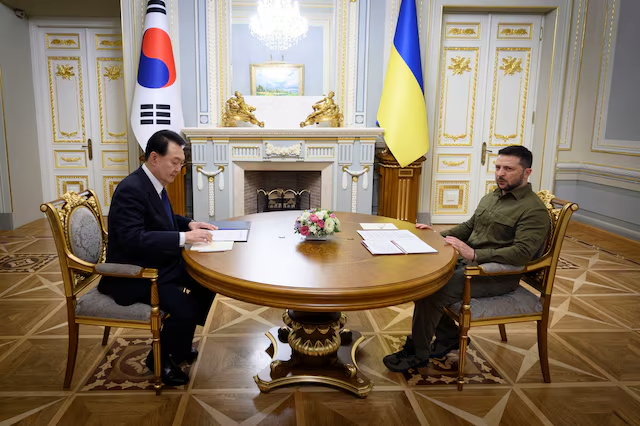
Ukraine and South Korea Deepen Military and Intelligence Cooperation
Zelenskiy emphasized that the partnership with South Korea will focus on increasing intelligence-sharing and expertise exchanges between the two nations. This cooperative effort will include a forthcoming exchange of delegations to strategize joint responses to the increased North Korean military presence in the region. “We agreed to strengthen intelligence and expertise exchange, intensify contacts at all levels, especially the highest, to develop an action strategy and countermeasures to address this escalation,” Zelenskiy stated. He also mentioned the intent to bring other mutual partners into this framework, signaling that Ukraine is aiming to rally support from additional allies.
South Korea has historically maintained a wary stance toward North Korea’s military activities, with any expansion of North Korean military involvement overseas being particularly troubling given the two nations’ longstanding hostilities on the Korean peninsula. As a close ally of the United States, South Korea’s commitment to supporting Ukraine underscores the global implications of Russia’s war efforts and its alliances with nations like North Korea.
The strengthening of South Korean-Ukrainian ties also highlights how nations outside Europe are increasingly viewing the Ukraine conflict as an issue with worldwide consequences, one that demands vigilance and coordinated international response. For South Korea, cooperation with Ukraine could represent a vital means of countering North Korea’s activities, leveraging intelligence insights that might expose weaknesses or logistical challenges in North Korean deployments.
Rising Presence of North Korean Troops: A Growing Concern
The presence of North Korean forces in Russian-held areas is seen as a critical development, underscoring Russia’s reliance on foreign support to sustain its war effort against Ukraine. Reports of North Korean troops have previously surfaced, with rumors of their engagement in support and combat roles for the Russian military. This alliance, which now seems to be taking tangible shape, has elicited both strategic and humanitarian concerns, as it indicates an expansion of the combatants involved in the war and points to new forms of international alignment.
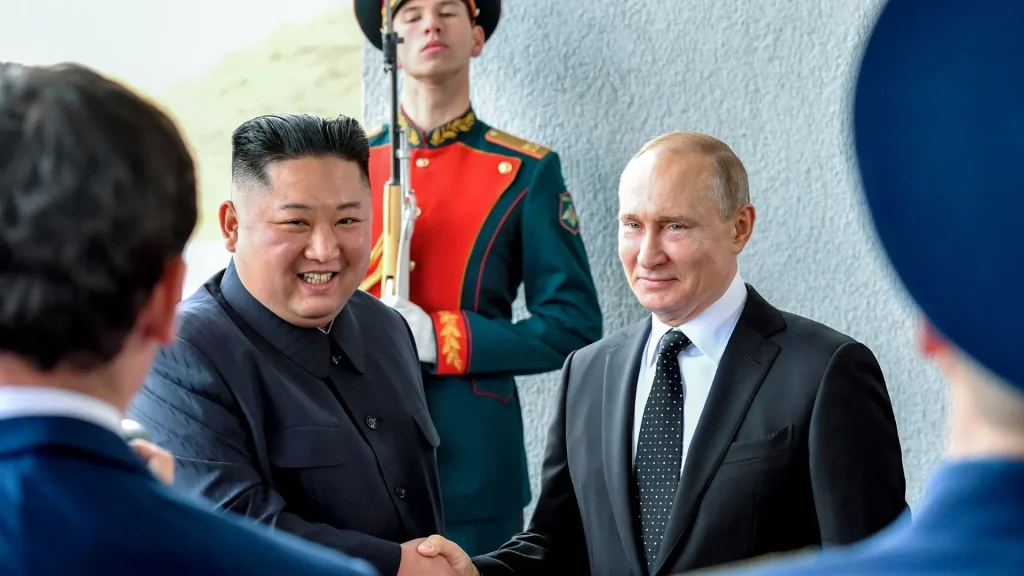
While official figures have yet to be fully corroborated, Ukrainian intelligence suggests that North Korea may further scale its deployment, reaching a possible 12,000 personnel. This surge would represent one of the most substantial direct international reinforcements for Russia since the war’s onset. Observers speculate that these North Korean forces might be deployed in supportive roles or, in some cases, even combat capacities, though details remain scant.
Zelenskiy’s warning regarding the influx of North Korean troops adds to existing concerns about Russia’s alliances. Recently, the Kremlin has strengthened its diplomatic relationship with North Korea, with leaders of both countries frequently discussing issues ranging from military cooperation to humanitarian aid. North Korean leader Kim Jong-un’s support for Russia has been evident through his government’s vocal criticisms of Western sanctions and NATO, and North Korea’s emerging military assistance to Russia represents a new chapter in the conflict.
South Korea’s Stance and Response
President Yoon has condemned North Korea’s involvement in the Ukraine conflict, describing it as a destabilizing factor in an already volatile situation. In response, South Korea has sought to intensify its own security arrangements, particularly with NATO countries, and deepen ties with like-minded nations that share concerns about authoritarian aggression. Yoon’s phone call with Zelenskiy is part of South Korea’s broader diplomatic response to recent North Korean provocations, which also include ballistic missile tests and military displays aimed at South Korea and the United States.
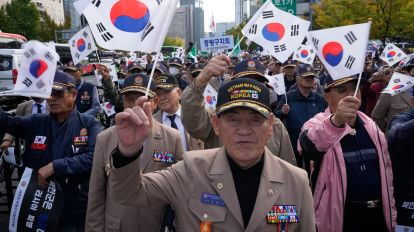
By aligning itself with Ukraine, South Korea seeks to counterbalance North Korea’s recent military moves, while also reinforcing its stance against authoritarian regimes that threaten global security. The decision to exchange intelligence and potentially coordinate strategies with Ukraine highlights the seriousness with which South Korea is addressing North Korea’s international military engagements.
Broader Implications for Global Alliances
The collaboration between South Korea and Ukraine against North Korean involvement has broader implications for international alliances. South Korea’s role as an ally to the United States and NATO could pave the way for increased support from other Asian countries concerned about North Korean militarism. Japan, which also maintains a strong alliance with the United States, has expressed concern about North Korea’s military support for Russia and could be encouraged to adopt a more vocal stance as well.
Moreover, Zelenskiy’s outreach to South Korea underscores Ukraine’s efforts to expand its support network outside of Europe and North America, drawing in partners from Asia and possibly other regions. This shift reflects Ukraine’s recognition that Russia’s alliances, especially with countries under Western sanctions, are becoming more active participants in the war.
The decision to enlist other “mutual partners” signals Ukraine’s awareness of the need for a coordinated global response to this evolving threat. The addition of North Korean forces to Russia’s military operations represents not only a bolstering of Russia’s on-ground strength but also an ideological alignment that could complicate future diplomatic resolutions.
Escalation Risks and Humanitarian Concerns
The increased participation of foreign forces like North Korea in the Ukraine conflict raises a range of concerns, from the humanitarian impact on local populations to the potential for further escalation. With foreign troops from multiple countries now involved, there is a heightened risk that the conflict could expand beyond its current borders, drawing in additional nations or alliances and exacerbating already strained international relations.
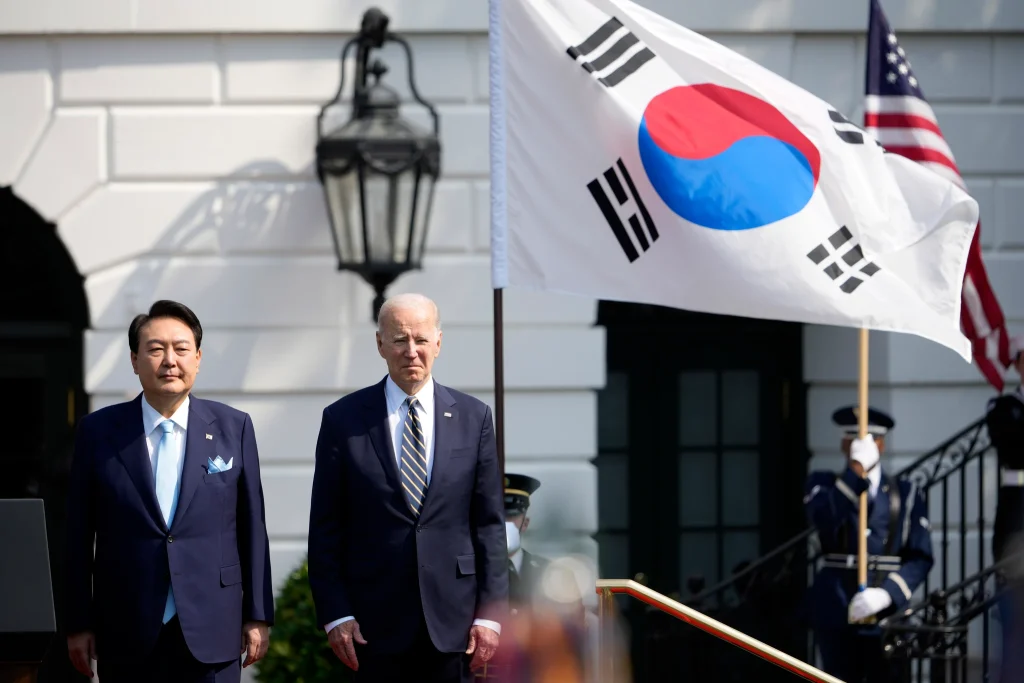
For many Ukrainians, North Korea’s involvement adds a new layer of anxiety, as it signals a strengthening of the Russian war effort and potentially increases the number of troops deployed against Ukrainian forces. Human rights organizations have also raised concerns over reports of foreign soldiers engaging in combat and contributing to the destruction of civilian areas. North Korean forces are known for their strict military discipline and often harsh treatment of both civilians and opposition forces, a factor that could lead to further suffering for the Ukrainian population.
As Zelenskiy continues to build alliances, Ukraine’s plea for a unified response grows more urgent. Humanitarian organizations have expressed hope that increased intelligence sharing will help mitigate risks to civilians, yet they also caution that as the conflict broadens, so does the potential for civilian displacement and hardship.
Looking Ahead: Strategic Implications of the South Korea-Ukraine Alliance
The partnership between South Korea and Ukraine marks a notable escalation in the global alignment against Russian aggression, and Zelenskiy’s commitment to expanding this alliance reveals his broader vision for a cohesive and robust international response to emerging threats. In forging a path toward intelligence sharing and military collaboration, Ukraine and South Korea are sending a message of resilience in the face of expanding authoritarian alliances.
As the global community assesses its stance on this evolving conflict, Ukraine’s new partnerships may inspire other nations concerned with similar authoritarian threats to join in a coordinated strategy. The coming months are likely to see increased cooperation not only between Ukraine and South Korea but also among other nations committed to defending democratic values and countering authoritarian advances.
While questions remain regarding the full scope of North Korean involvement and the potential consequences of this escalation, the Ukraine-South Korea alliance represents a significant step in the international effort to counterbalance the forces aligned against Ukraine. As Zelenskiy and Yoon’s nations prepare to coordinate strategies and exchange intelligence, the world watches to see if these measures will successfully address the new threats posed by North Korea’s involvement and contribute to restoring stability in the region.

